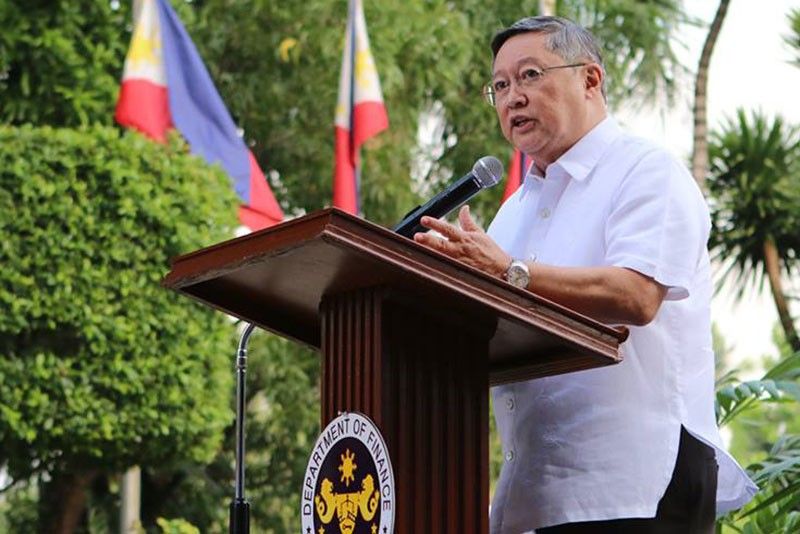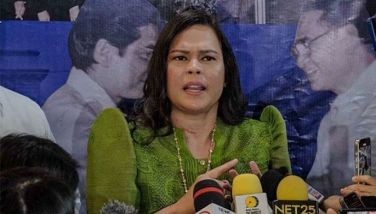Government still lukewarm to PPP

MANILA, Philippines — The country’s economic managers remain lukewarm to pursuing more big-ticket projects via public-private partnership (PPP) even as the shift in financing mode from official development assistance (ODA) to other modes is being considered.
In a briefing yesterday, Finance Secretary Carlos Dominguez III said should government pull out some projects from ODA financing due to the long approval process, it would still largely prefer to build the hard infrastructure using government funds and auction off the operations and maintenance (O&M) to the private sector.
He said, however, that government would continue to entertain unsolicited proposals that have already been put forward.
Socioeconomic Planning Secretary Ernesto Pernia said last week there has been a consensus among economic managers to entertain possible shifts from ODA financing to other modes of project delivery — such as PPP and general appropriations — if the processing of ODA loans take too long. This is meant to fasttrack the delivery of projects within President Duterte’s term.
The processing of ODA loans typically takes months, even years, because of varying bureaucratic processes in donor countries.
Pernia said the government is prepared to change the financing of projects originally meant for ODA financing “ as deemed necessary.”
Dominguez said the government remains wary of the complications that usually accompany PPP projects such as the long time requirement for negotiations and the lawsuits that have in the past ensued between private firms.
“PPP is also very long. We have done a study on how long PPP is. From project submission to start of project is also 30 months. The negotiating time that is required by our laws take a long time. With PPP, we also experience that the private sector guys sue each other,” he said.
He noted that some projects that were originally drawn up as PPPs before moved to the construction phase faster when financing was changed to government appropriations and the O&M component was auctioned off to the private sector.
The Finance chief also said this is an opportune time for the government to build a solid base of state assets using its own resources when it is enjoying good credit rating and access to favorable financing.
“While we are doing all these projects ourselves, the government is building up an asset base that is going to be very large. This way, if the future governments need money, they can privatize them. I think the time to build our own government assets is right now,” he said.
Economic managers also frown on the minimum revenue guarantee scheme in which private proponents can require the government to guarantee their revenue shortfalls in PPP projects.
“The government, although it does not guarantee the loan itself, it guarantees the revenue. If the revenue falls below so much, the government says we will top it up. So that is like a loan guarantee but in another form. The banks like that because they (project proponents) do not take the risk. I think if you are in the private sector, you should take the risk to make a profit. You should not ask the government to take the risk from you. So that is why we are also looking at another system of doing it,” said Dominguez.
While financing via the ODA route is more arduous, economic managers still consider it to be a vital component of financing for its ambitious Build Build Build program that aims to overturn decades of neglect in the country’s public infrastructure.
This is largely because concessional financing can still be extended to a developing country like the Philippines and with longer tenor for loans.
“We can borrow money at lower rates than the private sector. So if its a PPP, why charge the user a higher rate because of financing cost when we can afford the lower rate,” said Dominguez.
He said the economic team is how having more frequent meetings with their Chinese and Japanese counterparts to expedite the processing of ODA loans.
“We are just trying to go as fast as we can,” said Dominguez.
Pernia also urged the public to be more patient as government projects still have to hurdle a full project cycle after approval by the NEDA Board. The government’s project cycle is divided into six processes: project identification, appraisal and approval process (ICC , DBCC, NEDA Board clearance), budgeting and funding, implementation (detailed engineering and design, procurement, and construction), monitoring and evaluation, and post-evaluation.
“This is why projects are implemented but we have not seen them on the ground, projects become more visible under implementation when they really break ground and construction starts,” he said.
- Latest
- Trending


























